Renting a whole hotel for events or getaways offers a unique and luxurious experience that allows you and your guests to enjoy privacy and exclusivity.
However, determining the cost of such rentals can be complex, as it depends on several factors, including the location, size, amenities, time of year, length of stay, and additional services the hotel provides.
This comprehensive guide will delve into these factors, providing valuable insights and information to help you understand how they influence the cost of hotel renting.
Factors that Affect the Cost of Renting a Whole Hotel
Location
The location of a hotel is a multifaceted factor that plays a significant role in determining the cost of renting a hotel. Several aspects of the place contribute to this factor:
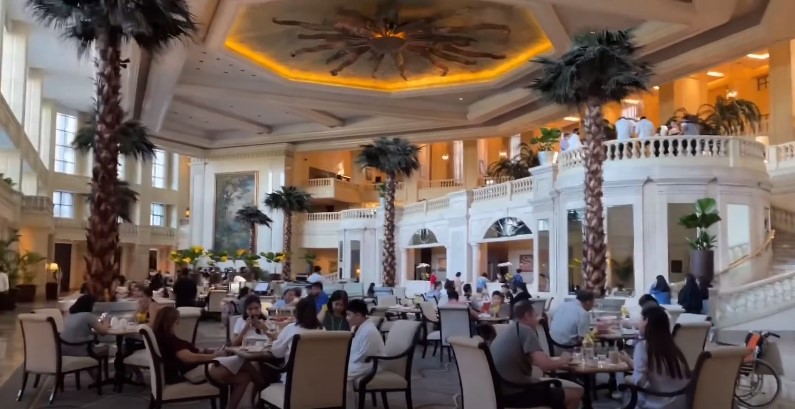
Popular tourist destinations vs. less popular areas
Hotels in popular tourist destinations often come with higher operating costs. The demand for accommodation in these sought-after locations is usually high, increasing competition.
Hotels may need to invest more in marketing, advertising, and maintaining a prominent presence to attract guests. The higher demand and competition can drive up operating costs, which, in turn, impact rental rates.
Impact on operating costs and rates
Various factors associated with the location can influence the operating costs of hotels. For instance, property values tend to be higher in prime locations, leading to increased property acquisition or lease expenses.
The cost of real estate in desirable areas can be significantly higher, which adds to the operating expenses of hotels. Additionally, taxes and labor costs may vary depending on the specific region or city. Local regulations and permits can also affect the costs of running a hotel. All these operating costs play a significant role in determining the rental rates of the hotel, as they need to be factored in to ensure profitability.

Accessibility and proximity to attractions
The proximity of a hotel to popular attractions, landmarks, business districts, or transportation hubs can influence its rental rates. Hotels conveniently located near major points of interest are more desirable to guests as they offer convenience and easy access to various amenities and activities. As a result, hotels in prime locations with proximity to attractions or transportation options may command higher rental prices.
Size
The hotel size, measured by the number of rooms and overall capacity, is another crucial factor influencing the cost of renting a hotel:
The number of rooms and capacity
Generally, larger hotels with more rooms have higher rental prices than smaller properties. Larger hotels offer a more significant number of rooms, which can accommodate a larger volume of guests simultaneously.
With more rooms, these hotels can provide additional amenities, facilities, and services, such as multiple restaurants, conference rooms, or recreational areas. The increased capacity and offerings contribute to a higher cost of renting the entire property.
Moreover, a more prominent hotel’s maintenance and staffing requirements are typically higher, which adds to the operating expenses and rental rates.

Level of exclusivity
Hotels that offer higher exclusivity and personalized experiences may come with a higher price point.
Exclusive services and facilities, such as private villas or suites, dedicated staff, customized concierge services, or access to exclusive amenities like private pools or lounges, elevate the guest experience.
These premium features cater to guests seeking a luxurious and complete stay. The hotel’s exclusivity directly impacts the overall cost of renting the property, as guests are willing to pay a premium for these high-end and personalized features.
Additional facilities and services
The size of a hotel also determines the range and variety of facilities and services it can offer. Larger hotels often provide more extensive amenities like multiple dining options, spa and wellness centers, fitness facilities, business centers, and recreational areas.
These additional features enhance the guest experience and increase the hotel’s perceived value, which can contribute to higher rental rates. Moreover, the cost of maintaining and operating these extra facilities adds to the overall expenses of the hotel, influencing the rental prices.
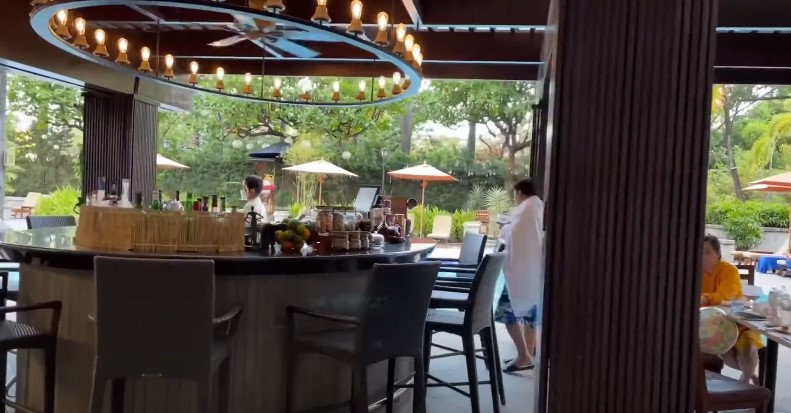
Time of Year
The time of year you plan to rent a hotel can substantially affect the cost:
- Peak vs. off-peak season: During peak seasons, such as summer or significant holidays, hotels often experience high demand, increasing prices. On the other hand, off-peak seasons typically offer more affordable rates as hotels aim to attract guests during periods of lower demand.
- Significant events and holidays: Prices for renting a whole hotel can surge during major events or holidays, as the demand for accommodation tends to be exceptionally high. These events can include festivals, conferences, or special occasions that attract many visitors.
One factor significantly affects hotel prices is the influence of significant events. Due to increased demand and limited availability, hotel prices can dramatically rise during major events like festivals or conferences.
The influx of attendees or tourists attending these events creates a surge in demand for hotel rooms, allowing hotels to capitalize on the increased interest by charging higher rates.

Another factor that contributes to higher hotel rates is the timing of holidays. Hotel rates are higher during holidays and peak travel periods when more people seek accommodation.
Holidays such as Christmas, New Year’s, or summer vacations prompt families and individuals to plan trips, resulting in a surge in hotel demand. This increased competition for available rooms allows hotels to charge higher rates.
However, travelers looking for cost-saving options can take advantage of off-peak seasons. Off-season periods often offer more affordable rates, making them a cost-saving choice for renting a whole hotel.
During off-peak periods, the demand for hotel rooms decreases, allowing hotels to offer more affordable rates to attract guests. Hotels may also offer special promotions, discounted rates, or package deals to fill empty rooms during slower periods, making the off-season an attractive choice for budget-conscious travelers.
The price ranges between peak season and off-season can vary. During the peak season, which usually coincides with popular travel times or specific events, hotel rates are typically higher than at other times of the year.
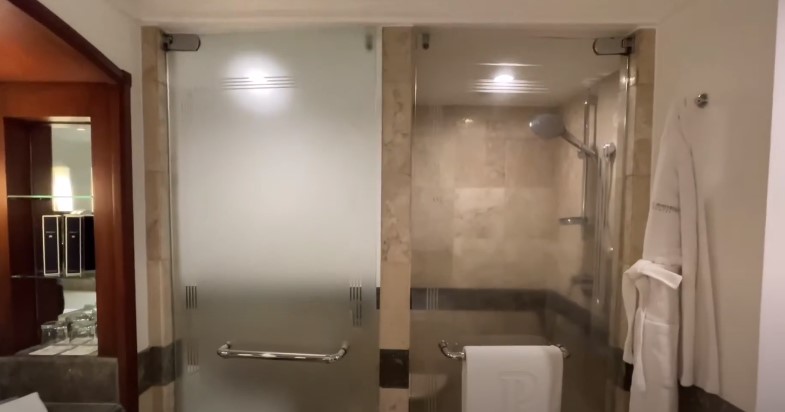
The increased demand for hotel rooms during peak season allows hotels to charge premium rates, taking advantage of the limited availability and high competition.
On the other hand, hotel rates tend to be lower during the off-season due to reduced demand and a surplus of available rooms. Travelers can use these lower rates to save money while enjoying quality accommodation.
Amenities
The amenities a hotel provides play a crucial role in determining the overall cost of renting a hotel. Hotels that offer extensive amenities come with higher rental rates.
These amenities include various services and facilities that enhance the guest experience, such as fine dining options, spa services, fitness centers, swimming pools, and various recreational activities.
While these amenities contribute to the overall cost of renting the entire property, they also provide added value and convenience to guests.

The presence of specific amenities can significantly influence the cost of renting a whole hotel. For example, hotels with exclusive access to gourmet dining [1] establishments with renowned chefs offering exceptional culinary experiences may command higher rental prices.
Similarly, hotels with luxurious spa treatments and wellness facilities, such as massage therapies, beauty treatments, and relaxation areas, often have a higher price tag.
Moreover, the availability of unique recreational experiences can also impact the rental cost. Hotels offering water sports, golf courses, tennis courts, or guided excursions can attract guests seeking additional entertainment and leisure options.
These added amenities contribute to the overall guest experience, but they also contribute to the overall cost of renting the hotel.
Ultimately, a hotel’s range and quality of amenities can significantly affect the rental rates. Hotels that invest in and maintain top-notch amenities aim to provide their guests with a luxurious and memorable experience, which often translates into higher costs for renting the entire property.
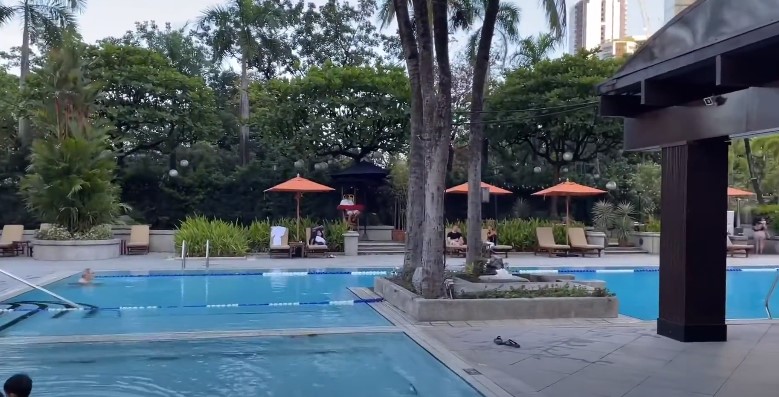
Length of Stay
The length of your stay is essential when determining the cost of renting a hotel. Several factors related to the duration of your accommodation impact the overall expense:
Nightly rates vs. package deals
Hotels often provide different pricing options based on the length of stay. While standard nightly rates are applicable for shorter stays, some hotels offer discounted rates for extended stays or package deals.
These package deals may include additional services or amenities, such as meals, spa treatments, or recreational activities. Opting for a package deal can provide cost savings compared to booking individual nights at the standard nightly rates, making it a more economical choice for more extended stays.
Minimum stay requirements
Hotels may have minimum stay requirements during specific periods or events. For instance, hotels may require guests to book a minimum number of nights during peak seasons or popular festivals.
This requirement ensures that the hotel can maximize occupancy during high-demand periods. These minimum stay requirements are crucial as they can impact the overall cost. If the minimum stay is longer than your intended duration, you may need to book additional nights, increasing the total cost of your visit.

Price ranges based on length of stay
Hotels often structure their rates to accommodate different durations of stay. As the length of stay increases, the per-night rate may decrease, offering more favorable pricing for more extended stays.
This pricing structure allows hotels to cater to guests with varying needs and budgets. Guests staying for shorter periods may pay a higher nightly rate than guests staying for a week or more. It’s advisable to inquire about the pricing options for different lengths of stay to find the most suitable and cost-effective arrangement for your needs.
Examples of Hotel Costs
To provide a clearer picture of the cost of renting a whole hotel, here is a table showcasing the average price per night for different hotel chains:
Table 1: Cost per night for various hotel chains
| Hotel Chain | Cost per Night (USD) |
| Luxury Chain | $500-$1000 |
| Mid-range Chain | $200-$400 |
| Budget Chain | $100-$200 |
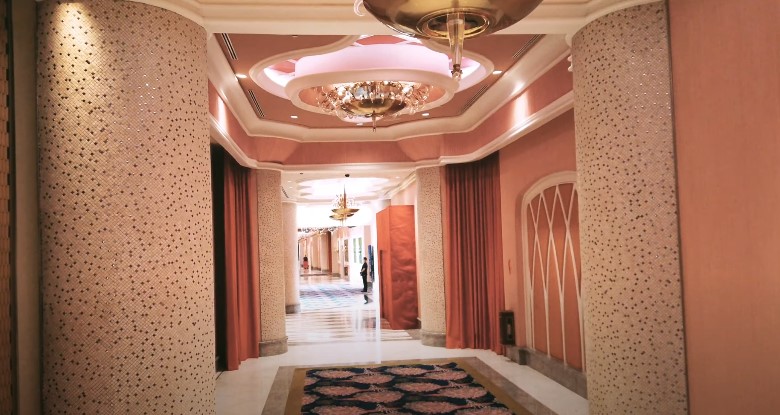
These price ranges give a general idea of the average rates for different hotel chains. However, it’s important to note that prices may vary depending on the location, time of year, and availability.
In addition to the hotel chain, the location and type of hotel also play a significant role in determining the cost. Here’s a breakdown of price ranges based on location and type of hotel:
Table 2: Price ranges based on location and type of hotel:
| Hotel Type | City Center | Suburban Area | Rural Area |
| Luxury Hotel | $800-$1500 | $600-$1000 | $400-$800 |
| Boutique Hotel | $400-$800 | $300-$600 | $200-$400 |
| Resort | $500-$1000 | $400-$800 | $300-$600 |
| Bed and Breakfast | $200-$400 | $150-$300 | $100-$200 |
These price ranges provide a glimpse into how the location and type of hotel can affect the cost of renting a whole property. City center hotels generally command higher rates due to their proximity to attractions, business districts, and amenities. Suburban areas often offer slightly lower rates, while rural areas are more affordable.
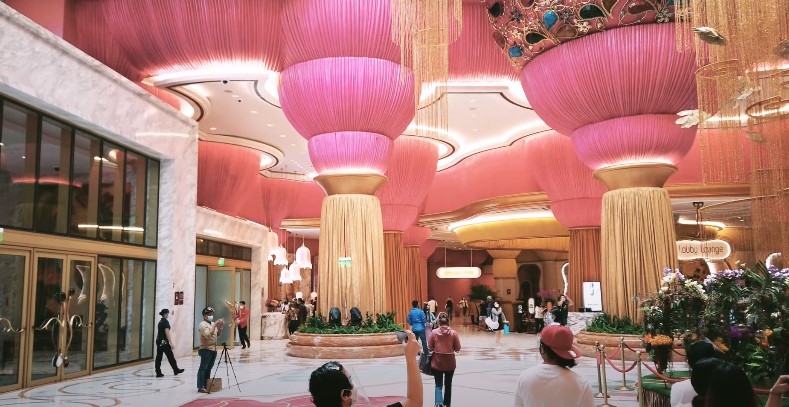
Luxury hotels typically have higher rates due to their upscale amenities, exclusive services, and prime locations. Boutique hotels offer unique charm, personalized experiences, and mid-range pricing. Resorts, known for their extensive facilities and recreational activities, come with varying price ranges. Bed and breakfast establishments offer a cozy and intimate atmosphere.
It’s important to remember that these price ranges are general estimates and can vary based on factors such as seasonal fluctuations, special events, and specific market conditions. It’s always recommended to research and compare prices for specific locations and hotel types to get accurate and up-to-date information on the cost of renting a whole hotel.
Additional Services During Your Stay
Other services may be available to enhance your experience when renting a hotel. These services can impact the overall cost of renting the property. Here are some key points to consider:
Event planning services and associated costs
If you require event planning services for special occasions such as conferences, weddings, or other gatherings, it’s essential to factor in the associated costs. Hotels offering event planning services may have additional fees or packages tailored to accommodate such events.

These services include venue setup, audiovisual equipment, catering, and coordination with external vendors. The complexity and scale of the event will influence the cost, and it’s advisable to discuss these requirements with the hotel to determine the associated expenses.
Transportation services and their importance
Some hotels provide transportation services to cater to the convenience and comfort of their guests. These services may include airport transfers, shuttle services to nearby attractions, or chauffeur-driven cars.
While these services can enhance your stay and simplify your travel logistics, it’s important to note that hotels offering transportation services may have higher rental costs. Including transportation services requires additional resources, such as dedicated vehicles and staff, which contribute to the overall expenses of the hotel.
Therefore, it’s essential to consider the value and necessity of transportation services concerning the rental cost.
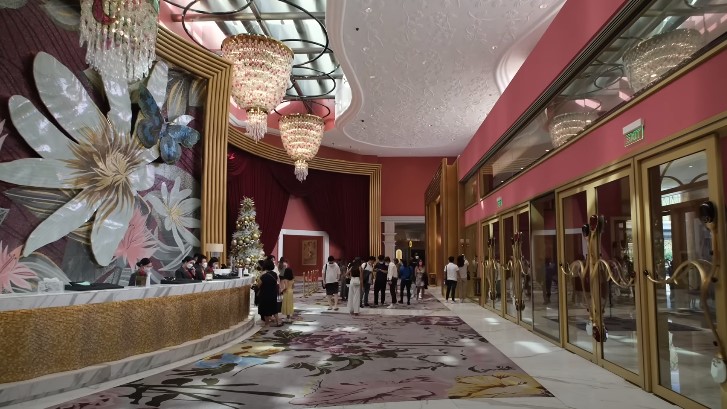
Concierge services and their value
Concierge services ensure guests’ seamless and personalized experiences. These services often include arranging restaurant reservations, tickets to shows or events, organizing transportation, providing local recommendations, and fulfilling specific guest requests.
The availability of concierge services can add value to the overall rental experience, as they enhance convenience and provide a high level of personalized assistance. However, it’s important to note that hotels offering extensive concierge services may have higher rental costs to cover the staffing and resources required to maintain these services.
Security Services and Their Role
Hotels understand the importance of ensuring the safety and well-being of their guests. To achieve this, they often provide enhanced security services that contribute to the overall cost of renting the hotel. These services include surveillance systems, security personnel, and access control measures.
Surveillance systems, including CCTV cameras strategically placed throughout the hotel premises, are crucial in monitoring public areas, entrances, and other vital locations. They serve as a deterrent to potential security threats and provide a means of monitoring activities within the premises. Surveillance systems not only enhance guest safety but also helps create a sense of security.
Furthermore, hotels may implement access control measures to enhance security further. These measures can include critical card systems or biometric authentication, restricting access to certain areas and ensuring that only authorized individuals can enter. By implementing access control measures, hotels provide security for guests, minimizing the risk of unauthorized access and maintaining a safe environment.

Housekeeping and Maintenance Services
Hotels typically offer regular housekeeping and maintenance services to ensure a comfortable and enjoyable stay. These services are vital for maintaining a clean and well-maintained environment throughout your stay.
While these services are often included in the rental package, it’s essential to clarify the frequency and extent of these services to ensure they meet your high expectations.
Housekeeping services generally involve cleaning and tidying guest rooms, replenishing supplies, and meeting cleanliness standards. The frequency of housekeeping visits can vary depending on the hotel’s policies, ranging from daily service to less frequent visits.
Some hotels may offer additional services such as turn-down service or specialized cleaning upon request. It’s advisable to inquire about the specific housekeeping services provided by the hotel to ensure they align with your preferences.
On the other hand, maintenance services address any issues or repairs that may arise during your stay. These can include repairing faulty equipment, addressing plumbing or electrical problems, and maintaining the overall functionality of the hotel facilities.
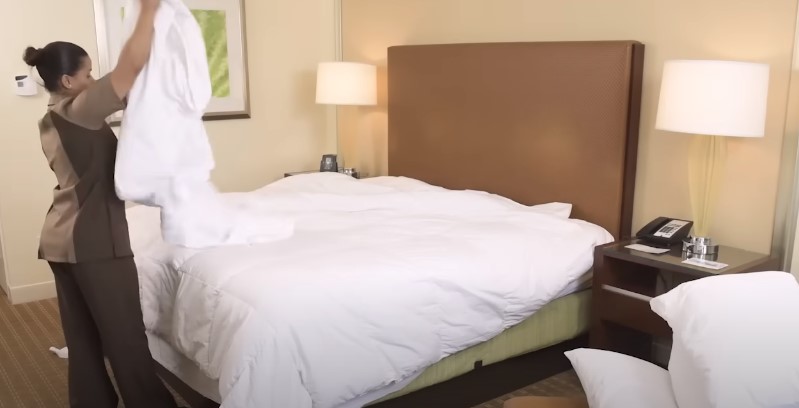
Hotels strive to address maintenance concerns to minimize any inconvenience to guests promptly. If you encounter any maintenance issues during your stay, it’s essential to promptly notify the hotel staff so that they can address the matter accordingly.
Housekeeping and maintenance services are vital to a hotel’s commitment to providing guests with a comfortable and enjoyable experience. Hotels ensure guests can relax and unwind by maintaining cleanliness and promptly addressing maintenance issues.
Spa and Wellness Facilities
Some hotels offer spa and wellness facilities, including fitness centers, swimming pools, saunas, or spa treatments.
Access to these facilities may be included in the rental cost, or they may require additional fees. Considering the availability and charges of such amenities can influence your decision and the overall rental expenses.
Food and Beverage Services
Hotels often provide on-site dining options, from restaurants and cafes to room service. The availability and quality of food and beverage services can impact the overall cost, as you may choose to include meals or catering options in your rental package.
Recreational Activities and Entertainment
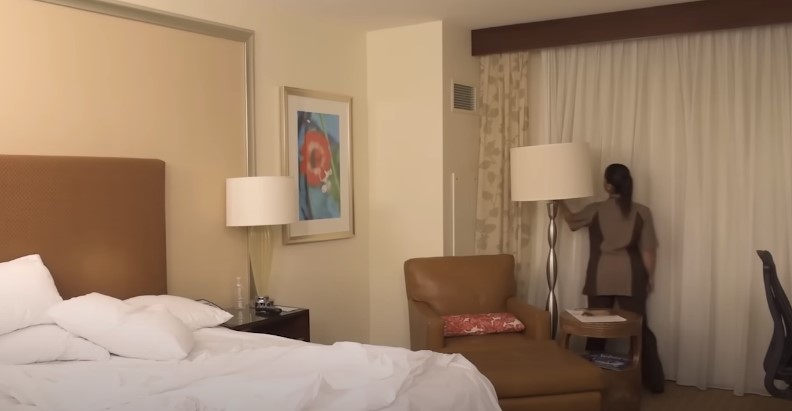
When selecting a hotel for your stay, it’s worth considering the additional recreational activities and entertainment options that may be available. These amenities can contribute to the overall rental cost, significantly enhance your experience, and provide added enjoyment during your stay.
Many hotels offer a range of recreational activities to cater to the diverse interests of their guests. These activities include sports facilities such as tennis courts, golf courses, and swimming pools.
These areas may feature billiards, table tennis, arcade games, or board games, offering opportunities for friendly competitions and bonding with family or fellow guests. Game rooms provide an engaging atmosphere, allowing you to relax in the hotel.
Additional Fees and Taxes
Inquire about any additional fees or taxes associated with renting the whole hotel facilities. These may include service charges, resort fees, occupancy taxes, or any other applicable charges that could affect the total cost of your stay.

Event planning, transportation, and concierge services are important considerations when assessing a hotel’s value and rental cost. It’s advisable to communicate your specific needs and preferences to the hotel to determine the availability of these services and any associated expenses.
Conclusion
Renting a whole hotel for your exclusive retreat or event can be a memorable and luxurious experience. Suppose you want to make an informed decision, it is crucial to consider all the above factors, including location, size, time of year, amenities, length of stay, and additional services.
By comparing different hotels’ prices and packages, you can find the ideal option that aligns with your preferences and budget.

